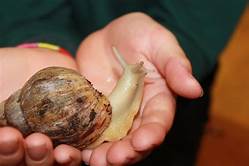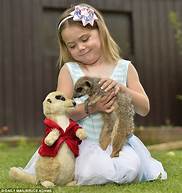Do Flying Squirrels Make Good Pets?
Flying squirrels are small, nocturnal rodents commonly found in North America and Europe. Known for their ability to glide through the air, they have captured the attention of many pet enthusiasts. However, before considering a flying squirrel as a pet, understanding their unique characteristics and requirements is important.

Temperament and Personality
1. Active and Energetic: Flying squirrels are highly active and require ample space to explore. They enjoy climbing, jumping, and gliding, making them unsuitable for small cages.
2. Nocturnal Creatures: Flying squirrels are nocturnal, meaning they are most active at night. This can be a challenge for people who prefer daytime interaction with their pets.
3. Solitary Animals: Unlike some other small pets, flying squirrels are generally solitary creatures. They prefer living alone and may become stressed or aggressive if housed with other animals.
Care and Environment
1. Diet and Nutrition: Flying squirrels have specific dietary requirements. They need a balanced diet that includes fruits, vegetables, nuts, insects, and occasional treats. Providing them with a variety of options is essential.
2. Housing and Enclosure: Flying squirrels need spacious enclosures that allow them to move freely and engage in their natural behaviors. The enclosure should include climbing structures, sleeping areas, and hiding spots.
3. Temperature and Humidity: Flying squirrels thrive in moderate temperatures and humidity levels. Extreme hot or cold conditions can cause health problems.
Health and Veterinary Care
1. Common Health Issues: Like other small animals, flying squirrels can be prone to various health conditions, including respiratory infections, digestive problems, and skin issues. Regular veterinary checkups are crucial for early detection and treatment.
2. Lifespan: The average lifespan of a flying squirrel in captivity is around 10 to 12 years. Providing proper care, diet, and veterinary attention can help them live healthier and longer lives.
Legal and Ethical Considerations
1. Legal Requirements: Different localities may have specific regulations regarding the ownership of flying squirrels as pets. It's essential to check local laws and obtain any necessary permits or licenses.
2. Ethical Considerations: Keeping flying squirrels as pets raises ethical concerns. They are wild animals and may not adapt well to captivity. It's important to consider their natural behaviors and needs before making a decision.
Conclusion
Flying squirrels can be fascinating and unique pets, but their care and well-being require careful consideration. Factors such as their nocturnal nature, solitary lifestyle, and specialized dietary and housing needs should be taken into account. Additionally, understanding the legal and ethical implications of keeping flying squirrels as pets is essential. Ultimately, the decision to own a flying squirrel should be made with thorough research and a commitment to providing them with the best possible care and environment.
Declaration: All article resources on this website, unless otherwise specified or labeled, are collected from online resources. If the content on this website infringes on the legitimate rights and interests of the original author, you can contact this website to delete it.




